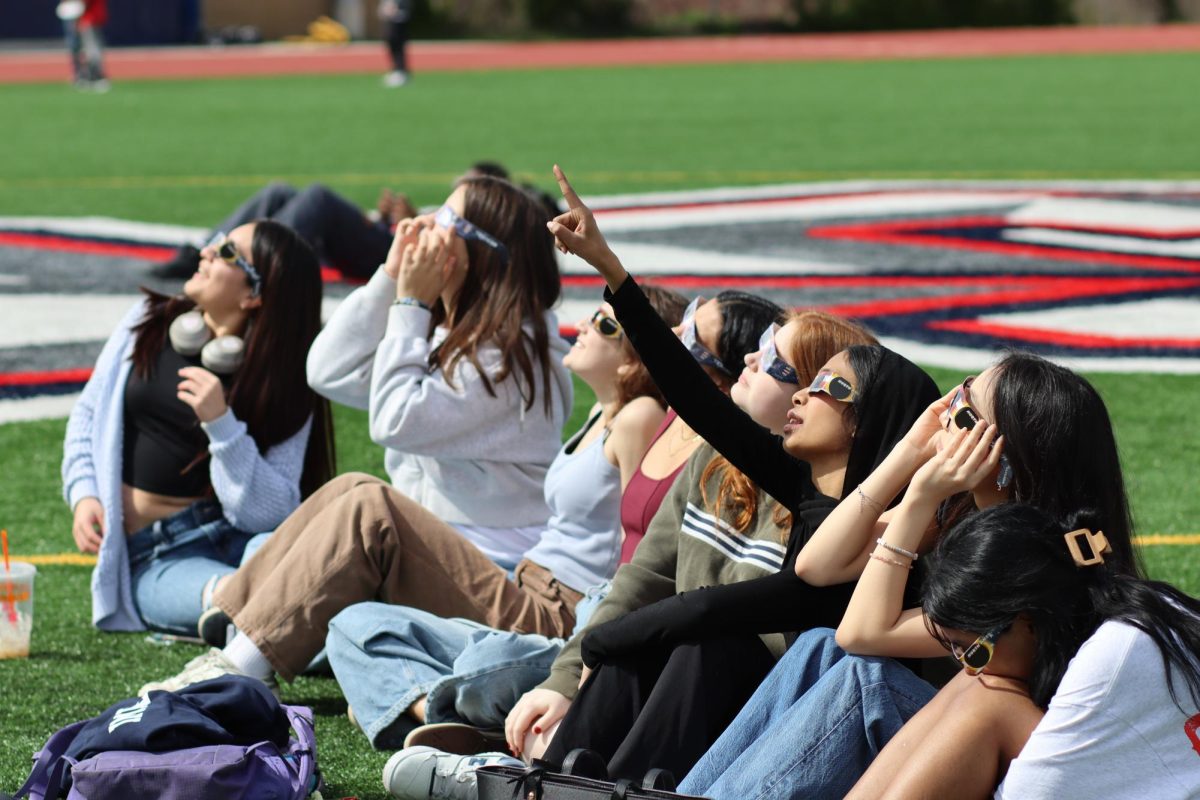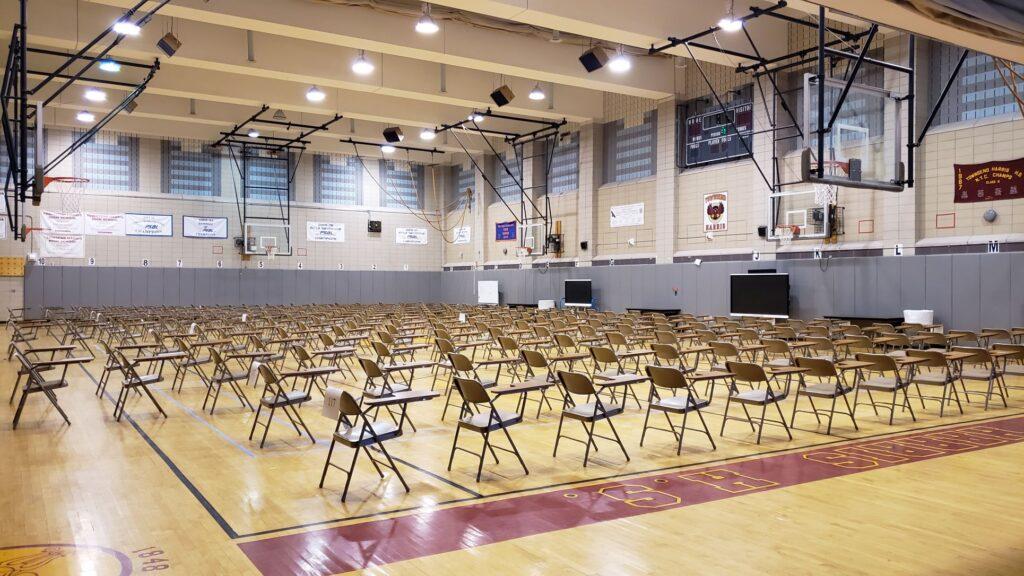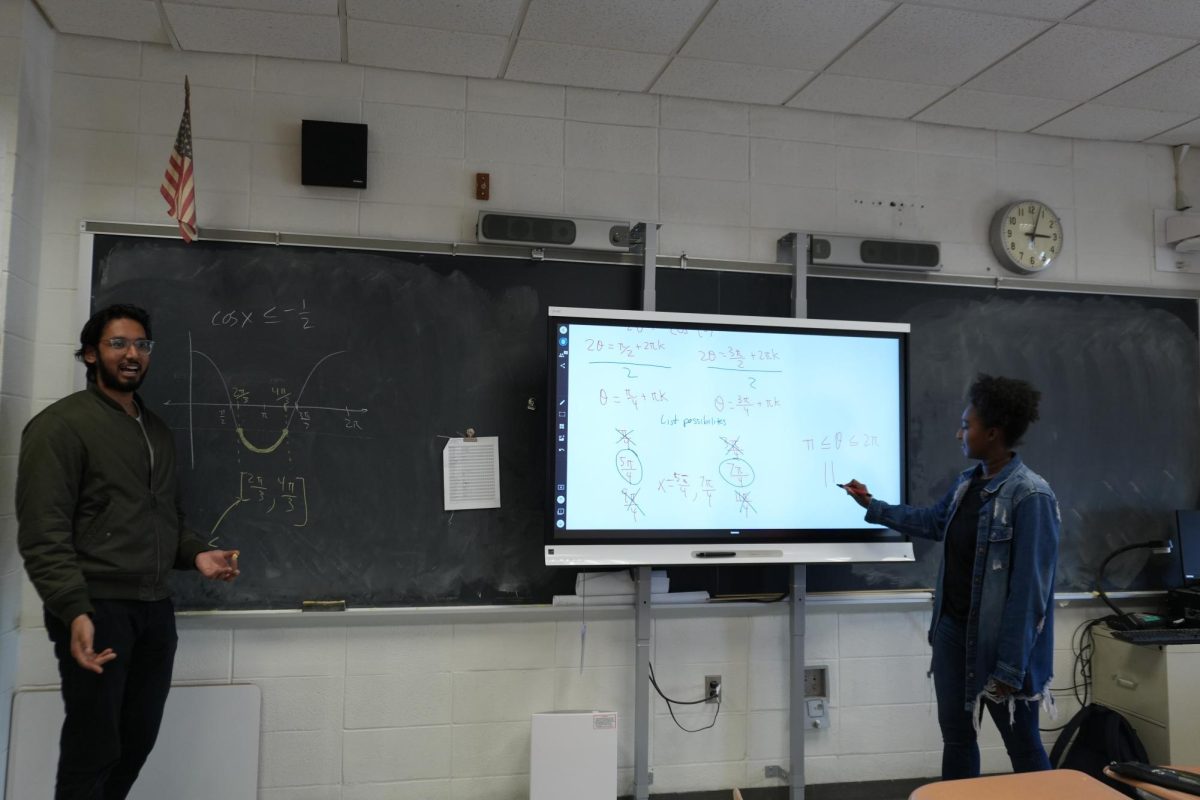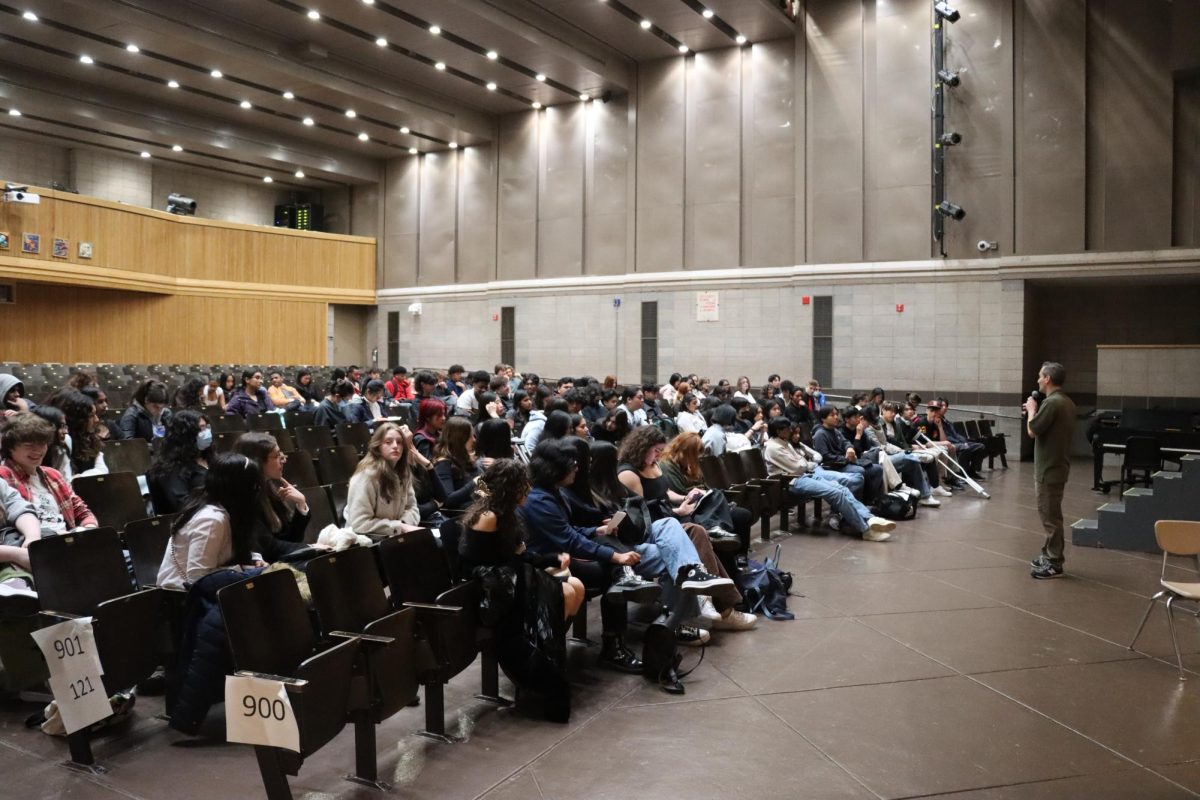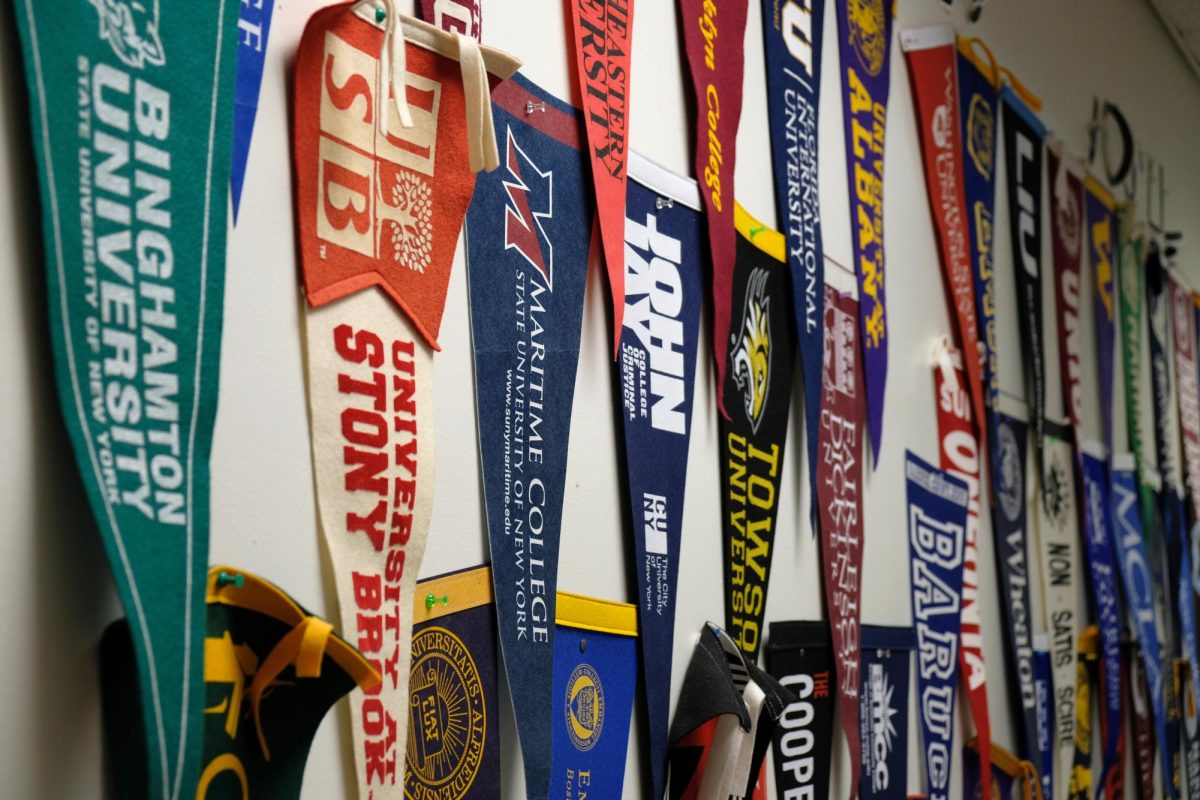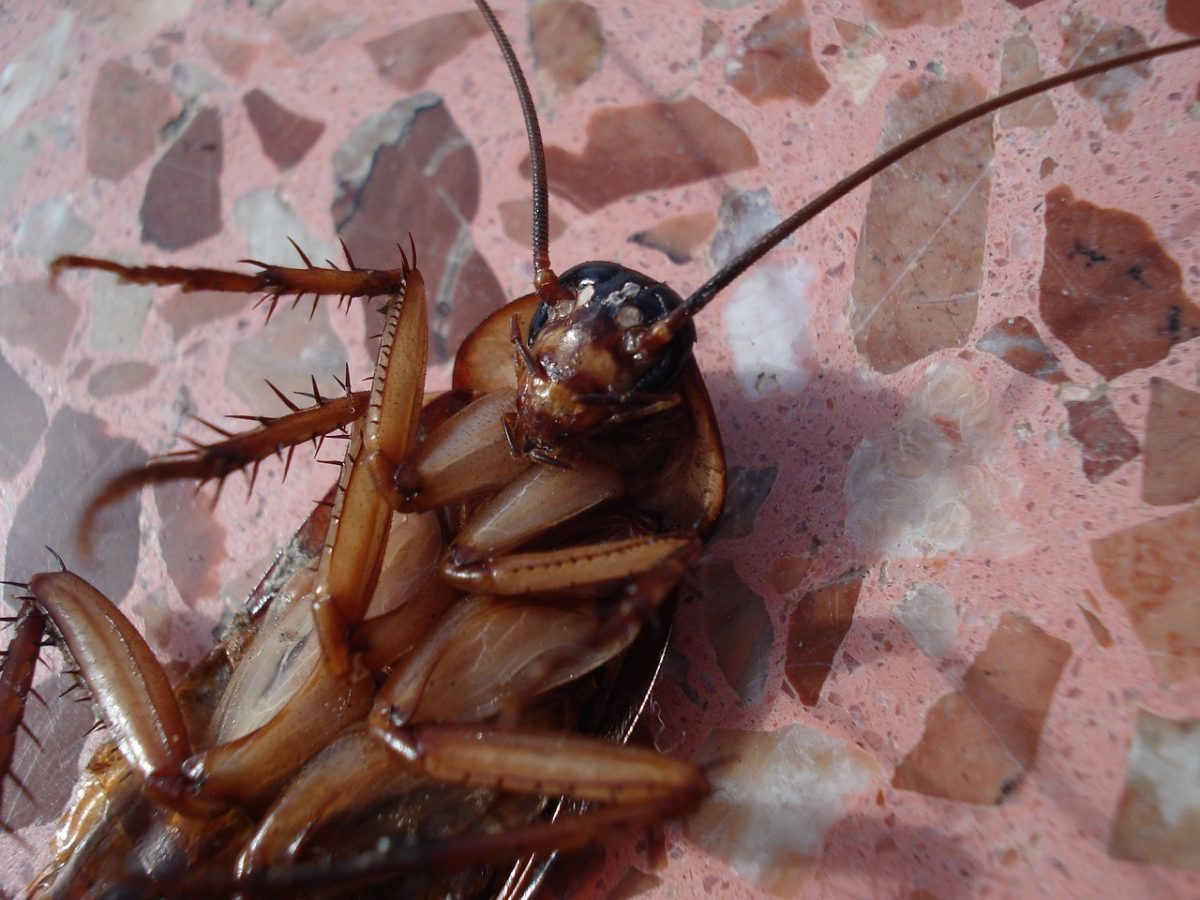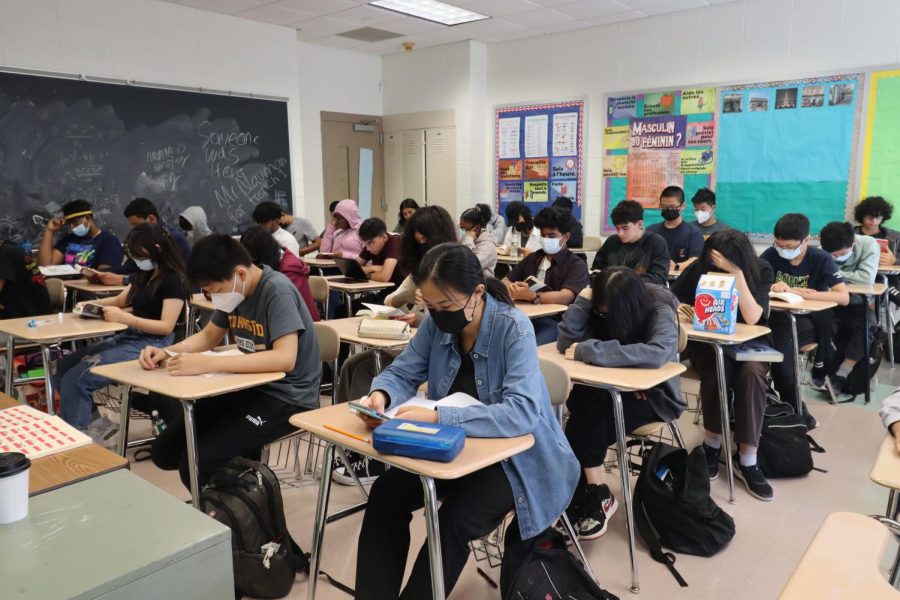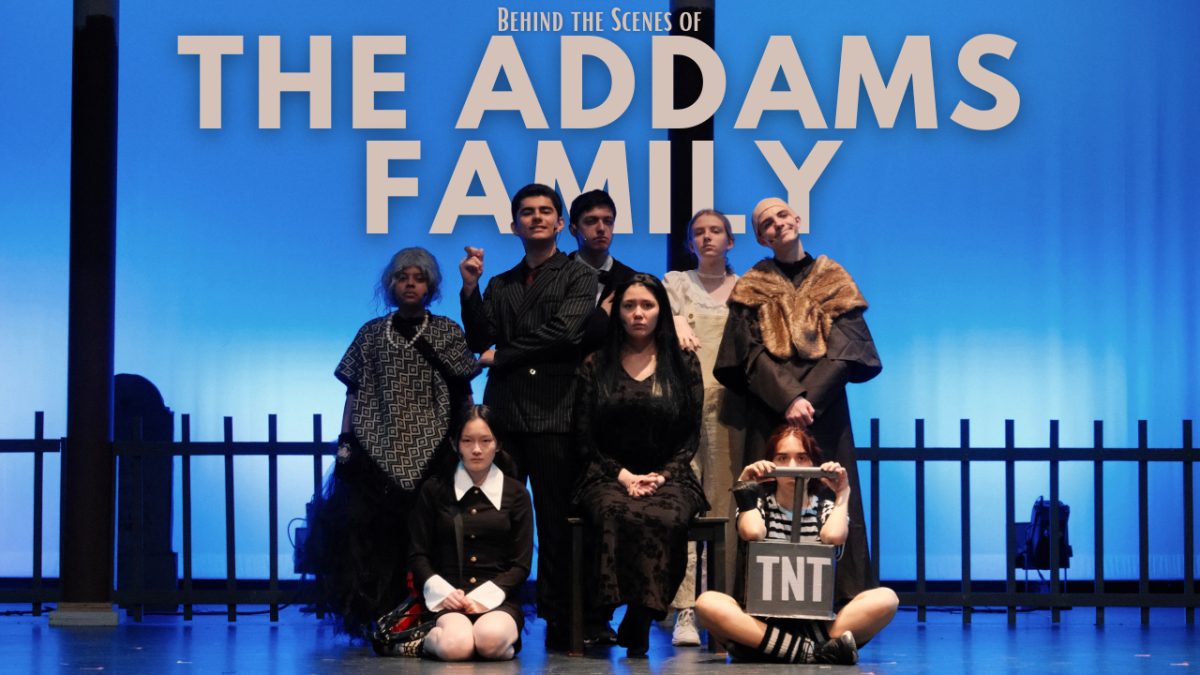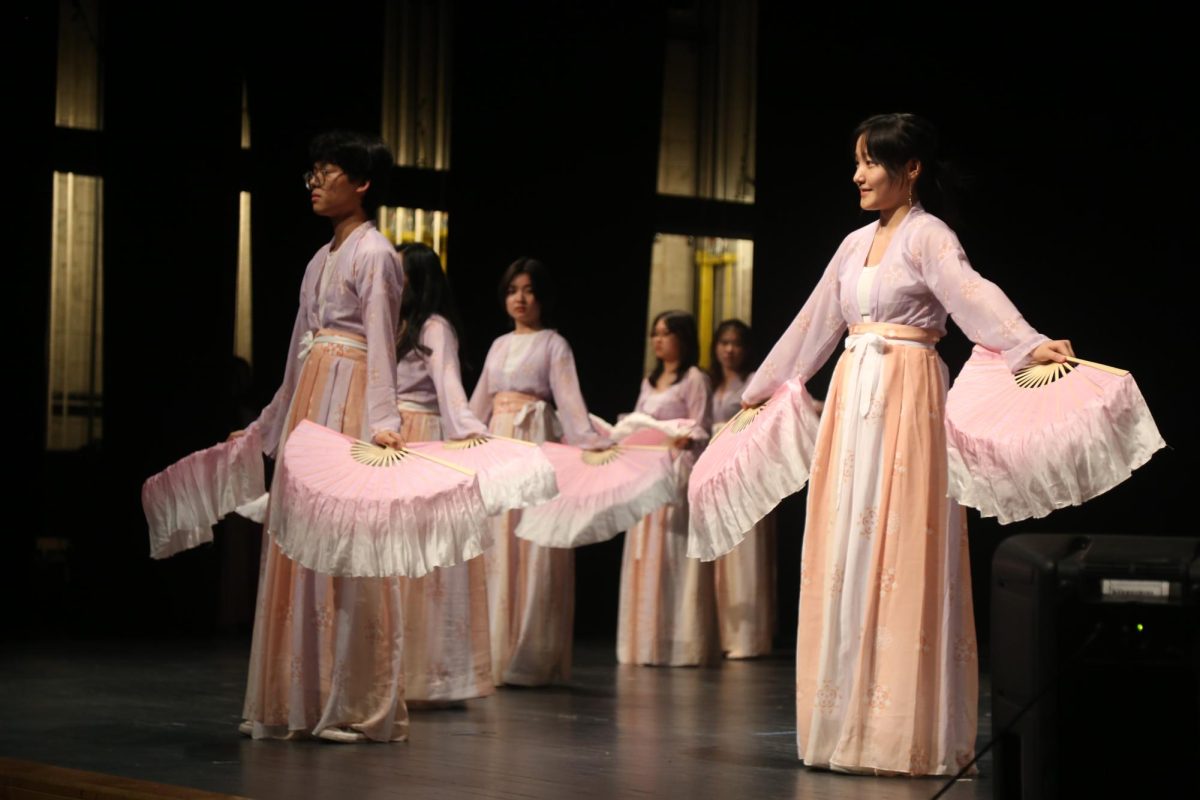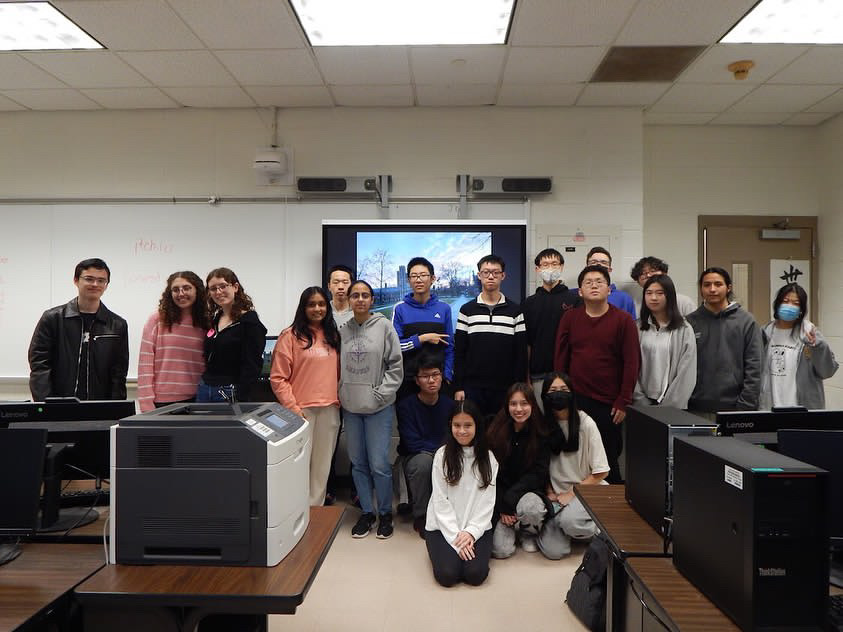
The student-run production SING! is one of the most highly anticipated annual performances at Townsend Harris High School. Seniors join forces with sophomores to create a team known as the Semores that competes with the Freshior team, made up of juniors and freshmen. SING! exhibits the students’ talents in acting, singing, dancing and art, as well as teamwork and sportsmanship. Bringing us a closer look at the behind-the-scenes action, junior directors Jillissa Drayton (JD) and Raya Kazdan (RK) and senior director Nadia Khan (NK) explained the thorough process of running the production.
- Directing a production as elaborate as SING! means that certain responsibilities must be divided between several people. What positions are available to students who would like to take part in directing?
JD: There are the two main directors. These are two juniors or seniors who approach the COSA and volunteer for the two spots. If there is no opposition, they are appointed as the directors. It’s also up to those two main directors to appoint directors of each talent like dancing, singing and acting.
NK: Since SING! is a show where a lot of people come together, naturally there are a lot of leadership roles that vary slightly between the SINGs. There are the directors who have the highest positions and get the most work. Then there are sectional directors and this is where the bulk of directors come from. Depending on styles of dance, there can be several dance directors and they normally get paired up so they don’t have to do all the work. There are singing directors. There are musician directors. Not every grade utilizes a jazz band but my grade is fortunate enough to have one so I have a concert master. Last year, I also created a role called musical coordinator who served as a liaison between singing and musicians because it made communication easier between the groups. Normally, there is no acting director because the main directors do it. There are also tech directors who handle all the technical stuff and I added a stage crew director since things get hectic backstage.
- Are there any requirements that a student interested in becoming a main director must meet? How might they go about fulfilling these requirements?
JD: There are no requirements that I know of but I would assume that the directors would have to be a part of SING! in the past.
RK: I would say it’s important that the main directors have experience with SING! and other productions, and are creative and very dedicated to the show.
NK: There are no written requirements to SING at all so there are no directing requirements either. There is an unsaid rule within our group that the director had to have been an active participant in SING as a freshman and sophomore and then “receive blessing” before volunteering for the position. No one needs to receive blessing but especially in our SING where we know that our leadership skills and dynamic get passed on to the next group, we take the time to help teach next year’s leaders.
- How are students selected for department directors and what duties are they responsible for?
RK: There are eight department directors, two directors per department. Jillissa and I selected the department directors by releasing an application and encouraging anyone interested to complete it. We then discussed each candidate’s qualifications, and chose directors based on the applications.
NK: In this SING!, I kind of wrote [up the roles]. In other shows, there have directing roles too but none like SING in this school. Everything in this school is volunteer-based. The duties encompass of basically helping to put a show together so depending on the show, the tasks vary.
- What are some of the responsibilities that come with the the various directing roles? How do you divide these responsibilities amongst yourselves?
RK: Being a director comes with the acceptance of a lot of responsibility. This includes writing the script, coordinating with other directors, planning auditions, selecting a cast, ordering costumes, coordinating the show, acting as a liaison between departments, training a backstage crew, communicating with advisors and Ms. Oberlander, dealing with the technical aspects of the show, giving feedback after rehearsals, and directing the show as a whole. It’s a lot of responsibility. But Jillissa and I are able to manage because we emphasize communication so everything is able to get done.
NK: Being one of two directors, there is nothing that doesn’t become a responsibility. Our job is to add the crazy glue that puts the show together so not only do we have to watch the actors but make sure that singing, dancing and all the other sections are also going in the right direction at the proper speed. There are also administrative roles like talking to all the appropriate adults and getting papers ready for the shows. Elina and I divide it up based on the dynamic on whatever the situation is. We trust each other so every matter is left to whoever wants to tackle it.
- Who is in charge of writing the script, and what is this process like?
JD: Raya and I wrote the script! For us, the process was mostly brainstorming the plot! We did this way back in June, so by the time summer started we had our script. The process is a lot of editing and rereading and editing and rereading again. There’s a lot of questioning. Like, does this make sense? After we do a few read throughs actors always have suggestions which we added in on several occasions. The biggest changes came after we had a meeting with our advisors who were able to give us advice from the point of view of a different age group. I think we can both say we’re very proud of what we have accomplished as a duo! Writing a script is not easy! The best part is seeing something that was originally a little paragraph turn into an entire production. It’s like watching your baby grow!
NK: Elina and I wrote a rough draft over the summer and then showed it to the sectional directors to talk it over. It gets revised over and over again by both us and anyone who takes the initiative to do it until we decide that a script has potential. It’s a process that required a lot of Pixar marathons and scraps of paper.
- Approximately how much time does it take to finish writing the script?
JD: From conception to final completion, it took us a few months! But we had a script written within a few days, it has just changed from its original form.
NK: I make sure to finalize it before school starts so I allow revisions throughout the entire summer and maybe the first week of school if there’s an emergency.
How are the different performances and songs selected to be featured in SING!?
JD: For Raya and I, it’s our first time doing this! We don’t know how it has been done in the past or how the other group has done it, but we actually had a meeting with all 10 directors and really talked about what would enrich the script. From there we researched and found songs we thought fit the script and figured out where to place them. After we choose songs we discuss who is doing what for each number. Are the singers going to sing? Are we going to use live music or a track? Are we going to have the dancers dance on stage or keep the actors on stage? Everything really revolves around the talent and resources we have- which in this case is outstanding!
NK: I love changing up genres in SING. I try to make sure that there’s variety both to keep everyone interested and to give as many people spotlight. When writing the script, I note where I’d like to see a performance and I will either envision a specific group or let the sectional leaders talk it out. They also come to an agreement of the song choice.
- Is there a schedule that you must adhere by during preparation for the show, or are you able to create your own plan for rehearsals?
JD: We are given a schedule of when we are permitted to rehearse and it serves as a guideline of where we hold our practices. However, actually holding the rehearsals is completely up to us and the advisors. So we try to use every single day we are allotted but there have been some days we decided not to practice for whatever reason.
NK: COSA divides practice days and gives out a calendar and then the directors plan the rest. I tend to give a general outline of where everyone should be in the first month and I modify along the way. By the time the commissioners start visiting, if run throughs haven’t already started then they have to.
How often do you have rehearsal? What is the duration of an average meeting, and what sorts of things need to get done within that time?
JD: This year from start to finish each group was given 35 practice days, give or take, according to the schedule we were given. For the Freshiors, the average rehearsal is from 3:30 to 5 pm. What we do within that time really varies. In the beginning and on cafeteria days we tend to separate into groups, but as the show approaches we usually work on run throughs or merging certain sections for the more complicated scenes.
NK: Gradually practice gets longer. September and October are where singing and dancing should be learned and by the end of the first week of November, it should all be ready for the stage. I let the sectional directors decide how long practice should be on a daily basis but it can range from 4:30 anywhere until 6:00 on auditorium days. There’s an objective in every group whether it be to clean up a dance or fix harmonies and everyone must stay until the objective has been met.
What is the atmosphere like backstage during each show? Is it chaotic? Do you ever run into any last minute problems, and if so, how do you deal with them?
JD: During the rehearsals it’s fine! Of course there’s some confusion but Raya and I have done a great job keeping everything under control. As far as my prior experience on the actual night of the show… One word—chaotic! When we use the dressing rooms, it’s hot and stuffy and a million things always get left behind and lost during the shows. Raya and I have witnessed this first hand so we’ve tried to minimize this as much as possible by being proactive and organized with everyone’s costumes and other belongings.
RK: The atmosphere is not chaotic because Jillissa and I have had an attitude since the beginning of the year to always be ahead and in control of what needs to be done. There are always last minute details that need to be fixed, but with a positive attitude and a willingness to stay extra time and get something done, any issue can be mended.
NK: When the run throughs start, stage crew has to pay a lot of attention to their surroundings. Things certainly get chaotic when props and everywhere and people need to get out for a scene. Things get even more chaotic when everyone has to be backstage during the show. I take things one day at a time so I do whatever I need to do in order to get the job done whenever I come across a problem.
After the show is over, how soon do you begin preparing for the next production?
RK: Toward the end of this school year, Ms. Oberlander will notify Jillissa and I of the theme for next year’s SING, and upon this announcement we will begin our planning for next year’s show.
NK: In terms of SING, no planning begins until the theme is given out before summer vacation. This year, post-SING will be filled with creating a rule book in order to end the disorderly ways of SING. This year, along with that, I will be prepping my sophomores and getting involved with my next event: Festival of Nations.


